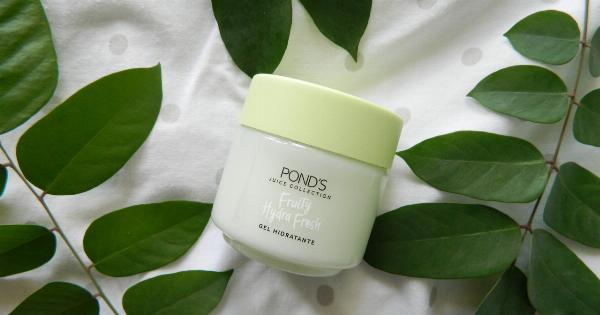Many people strive to achieve and maintain healthy, radiant skin. One crucial aspect of skincare that often gets overlooked is proper skin hydration.
Hydrated skin not only looks supple and youthful but also functions more effectively as a barrier against external aggressors. In this article, we will explore the science behind skin hydration, how it affects our skin health, and the best practices to keep our skin adequately hydrated.
Understanding the Skin Barrier
Before delving into the science of skin hydration, it’s essential to understand the skin barrier and its role in maintaining skin health.
The outermost layer of our skin, known as the stratum corneum, acts as a protective barrier, preventing excessive water loss and shielding us from harmful environmental factors.
The Role of Natural Moisturizing Factors
Inside the stratum corneum, there are natural moisturizing factors (NMFs) that help retain moisture. These NMFs, such as amino acids, lactate, urea, and salts, attract and bind water to keep the skin hydrated.
Additionally, lipids (fats) present in the stratum corneum help seal in moisture, further enhancing the skin’s ability to retain water.
The Science of Skin Hydration
To understand skin hydration better, we need to explore the concept of transepidermal water loss (TEWL). TEWL refers to the water that evaporates from the skin into the atmosphere.
Maintaining a proper balance between moisture retention and TEWL is crucial for healthy skin hydration.
Our skin contains hygroscopic substances that can absorb and retain moisture from the surrounding environment. These substances, primarily sugars and amino acids, attract water molecules through hydrogen bonds, helping to keep our skin hydrated.
The Role of Humectants in Hydration
Humectants are substances commonly used in skincare products to attract and hold moisture on the skin’s surface. They work by absorbing water from the deeper layers of the skin or the atmosphere, increasing the overall hydration level of the skin.
Common humectants found in skincare products include glycerin, hyaluronic acid, and sorbitol.
The Impact of External Factors on Skin Hydration
Several external factors can affect the hydration levels of our skin. Environmental conditions like low humidity, excessive sun exposure, and harsh winds can lead to increased TEWL, causing the skin to become dry and dehydrated.
Additionally, frequent use of harsh cleansers or overexfoliation can disrupt the skin barrier and deplete moisture levels.
The Benefits of Properly Hydrated Skin
Keeping our skin properly hydrated offers numerous benefits. Hydrated skin is more flexible and resilient, reducing the risk of developing fine lines and wrinkles.
It also helps maintain a balanced oil production, preventing the skin from becoming too oily or too dry. Furthermore, hydrated skin appears plump and glowing, giving a more youthful and healthy appearance.
How to Hydrate Your Skin
Now that we understand the science behind skin hydration, let’s explore some practical tips to keep our skin adequately moisturized:.
1. Drink Sufficient Water
Proper hydration starts from within. Drinking an adequate amount of water daily helps maintain your body’s overall hydration levels, positively impacting your skin health.
2. Use a Gentle Cleanser
Avoid using harsh cleansers that strip away natural oils from your skin. Opt for gentle cleansers that effectively remove impurities while maintaining the skin’s moisture balance.
3. Apply Moisturizers Regularly
Moisturizers play a crucial role in replenishing and sealing in moisture, especially after cleansing or bathing. Look for moisturizers containing humectants and occlusive ingredients to promote hydration.
4. Consider Humidifiers
If you live in a dry environment, using a humidifier can help increase the moisture level in the air, benefiting your skin’s hydration.
5. Protect Your Skin
Shield your skin from excessive sun exposure by wearing sunscreen and protective clothing. Sunburn damages the skin barrier, leading to increased TEWL and dehydration.
6. Avoid Hot Showers
While tempting, hot showers can strip the skin of its natural oils and disrupt the skin barrier. Opt for lukewarm water and limit your shower time to maintain hydration.
7. Exfoliate Gently
Exfoliation removes dead skin cells and allows better absorption of moisture. However, overexfoliating can damage the skin barrier. Be gentle and opt for chemical exfoliants rather than harsh scrubs.
8. Hydrating Face Masks
Face masks infused with hydrating ingredients like hyaluronic acid can provide an extra boost of moisture to the skin. Include these in your skincare routine to enhance hydration.
9. Diet and Supplements
A balanced diet rich in fruits, vegetables, and healthy fats nourishes the skin from within. Additionally, certain supplements, such as omega-3 fatty acids and vitamin E, support skin health and hydration.
10. Hydrate from Inside and Outside
Combining internal and external hydration methods is the key to achieving optimal skin hydration. Drink sufficient water while also using well-formulated skincare products to maximize the benefits.




























